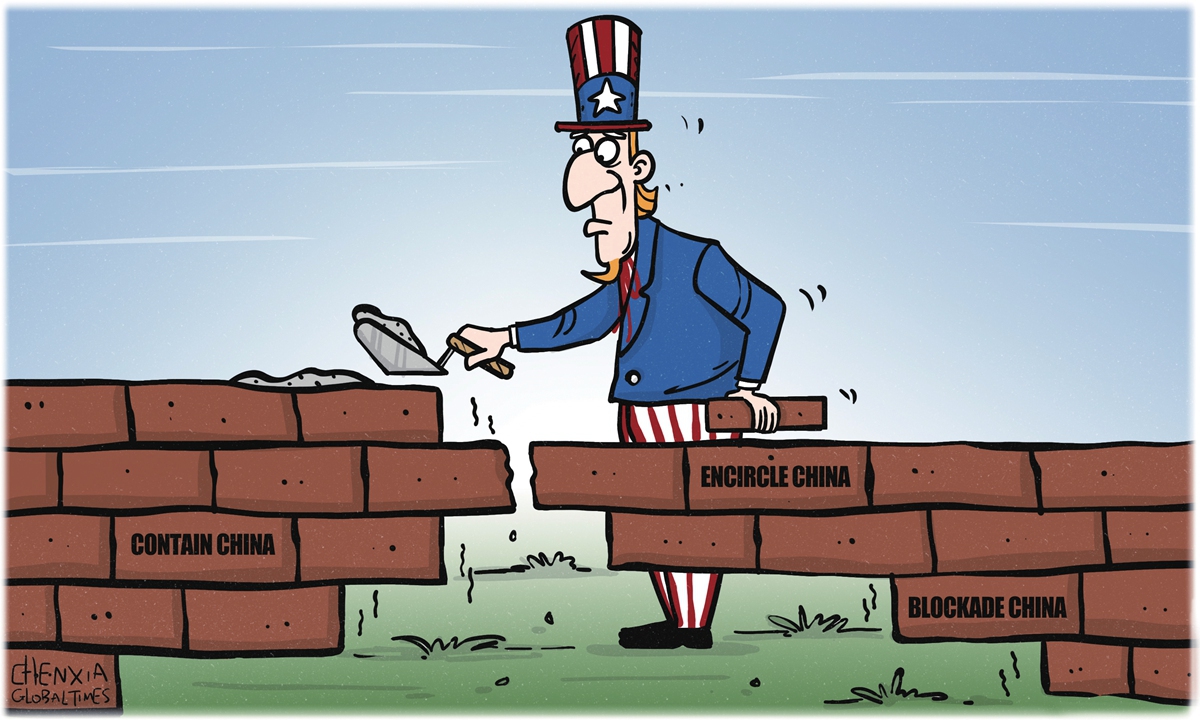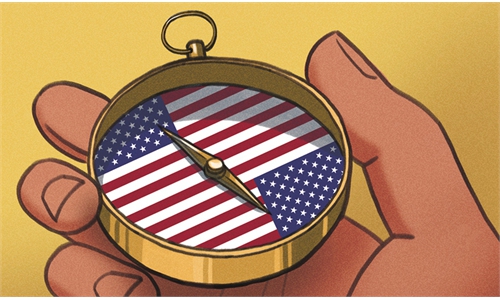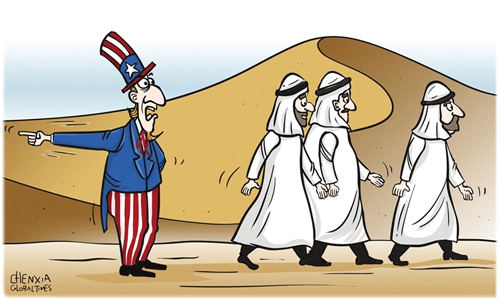Washington needs to take real actions to put out fire it has started with China

Illustration:Chen Xia/GT
US President Joe Biden talked about the China policy of the US during a meeting with Defense Department leaders on October 26.
Biden said the US has to "responsibly manage the increasingly intense competition with China," and "we have to maintain our military advantage by making clear that - that we do not seek conflict."
It's a pretty gentle statement from Biden.
But blocking chip exports to China, squeezing Chinese manufacturing across the board from low- to high-end products, deploying state-of-the-art weapons around China, continuing to sell weapons to Taiwan island, teaming up with chip makers to cut off China's chip supply chain, and imposing sanctions on more than 600 Chinese companies and institutions…
If Biden doesn't consider this a conflict with China, then what is?
The Chinese have long been less concerned about what the US top brasses say, because they always talk a good game on the surface, but actually do the opposite.
No matter how "gentlemanly" Biden's statements may sound, what Washington is actually doing is creating conflict and increasing conflict, instead of reducing conflict.
Senior Pentagon officials are talking about securing military superiority over China, increasing military threat to China, and encircling China. They are not at all preparing for the prevention of war in the region, but are constantly creating tensions and excuses for their own military intervention to push East Asia and the South China Sea into war.
The atmosphere in the US political arena is poisoned by the self-deceptive "China threat" narrative. When it comes to the US-China relationship, politicians compete to see who is more domineering and who can come up with more hardball tactics. Lawmakers who urge the administration to get tough on China are actually aiming to fight a war with China.
It is not hard to guess where the next punch of Washington's China policy will be thrown, and more Chinese companies and institutions will be on their list of sanctions. According to Bloomberg, citing people familiar with the matter, the US has even suggested the EU draw upon lessons from the export control regime the US is using to punish Russia to target China.
US strategists know very well that they need to create an "enemy" and pile more pressure on and create more conflict with that "enemy" to stimulate its own development. That's how the danger is approaching step by step. How pale those expressions of "competition" and "not seeking conflict" seem now since US strategy is evolving into an irrational desire obsessed with defeating China, no matter how heavy the cost of self-inflicted injury.
You may think that I have gone too far in describing the current situation between the US and China as dangerous. So tell me, what milder metaphor could be used to describe these practices when the US has begun to smash the wheels of China's development, and to position China as an "aggressive" country, so that it can deploy more offensive weapons around China for its so-called defense?
Washington has lit a long fuse. If it will manage the US-China relationship responsibly, as it says it will, it cannot stop the fuse from burning simply by opening its mouth; it needs to do something to put it out.
During his meeting with US Ambassador to China Nicholas Burns on October 28, Chinese State Councilor and Foreign Minister Wang Yi said that China-US relations are now at a critical juncture.
Perhaps, a real war will not break out tomorrow, but the step-by-step deterioration of China-US relations is becoming extremely dangerous and has reached a critical juncture.
We are not seeing Washington do anything to effectively control the conflict now. Instead, it is preparing to create more conflict.
History tells us that there are many times when it is difficult to control the timing of the outbreak of a war once a strategy to fight a particular adversary to death has been established, and strategic decision-makers cannot "actuarially" figure out which straw is the last one to break the camel's back.
The author is a senior editor with People's Daily, and currently a senior fellow with the Chongyang Institute for Financial Studies at Renmin University of China. dinggang@globaltimes.com.cn. Follow him on Twitter @dinggangchina




